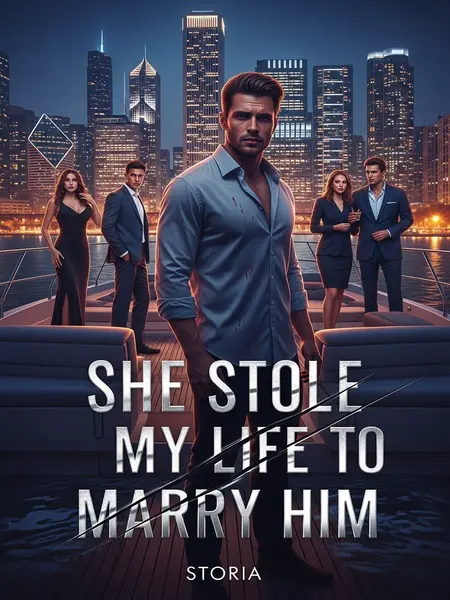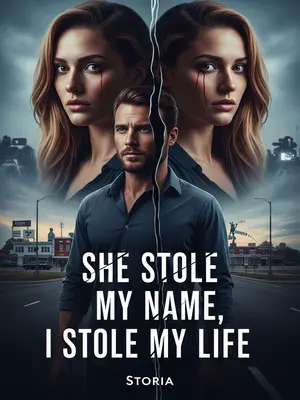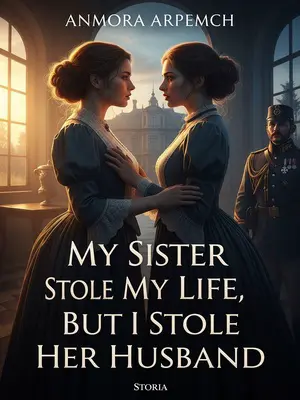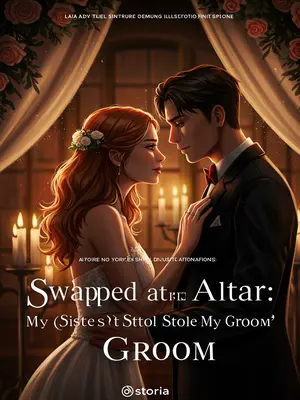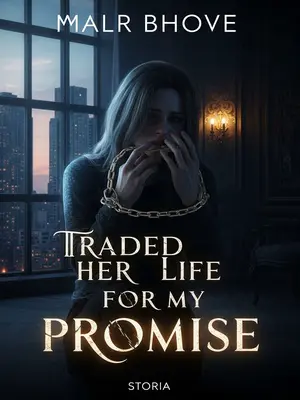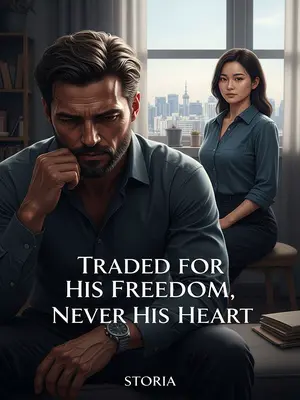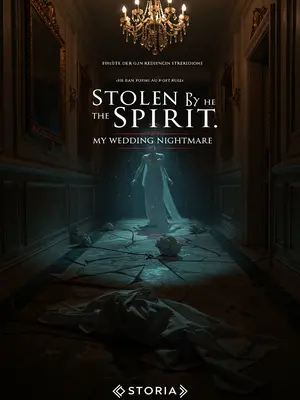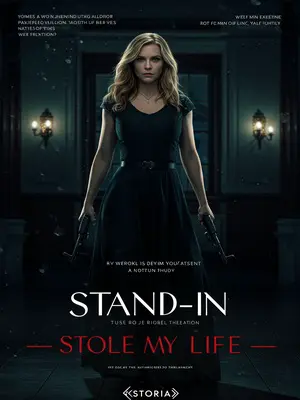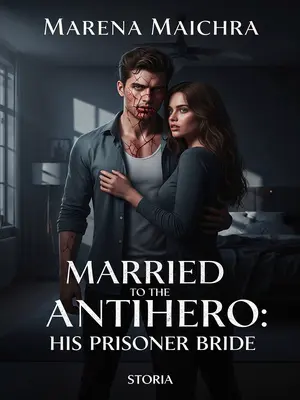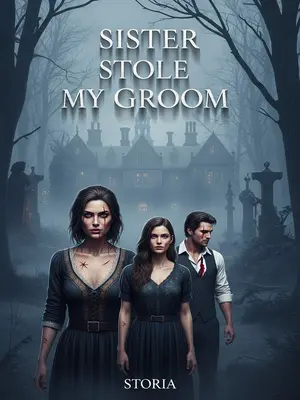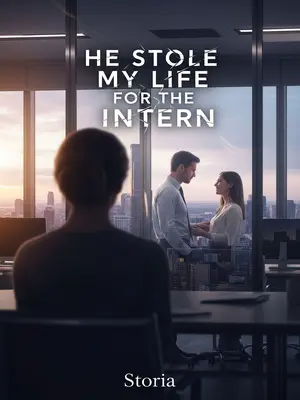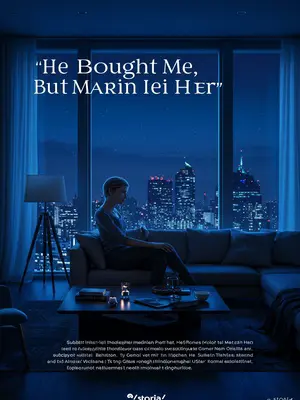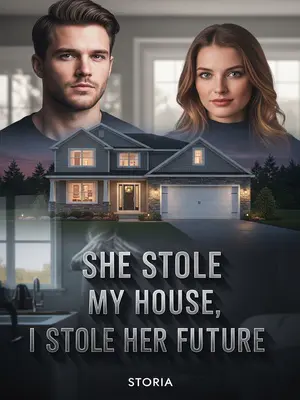Chapter 2: Lies, Inheritance, and Bitter Truths
I nodded, promising myself I’d treat her right from then on.
In that moment, the pain and betrayal faded into the background. I made a silent vow to be the husband she deserved, to build something real from the ruins of my old life. I didn’t know if I could ever repay her, but I was going to try.
I left the area outside Savannah and her mom’s room, not even sure how I made it downstairs.
My legs moved on autopilot, carrying me out into the chilly air. My mind was a blur, replaying every word I’d overheard. I barely noticed the world—the distant traffic, the crunch of leaves, the sting of cold wind on my face.
It was barely winter, already freezing, but I was sweating through my undershirt, barely able to stay on my feet.
The cold should have snapped me awake, but instead I felt clammy and feverish. My hands shook, vision blurred. I leaned on the railing, gasping, fighting the urge to puke. My body was betraying me all over again.
I dialed a number.
My fingers were numb, but I punched in the digits. Pressed the phone to my ear, heart pounding.
"I need you to fake my death. One week from today."
My voice was flat, empty. I felt detached, like I was watching someone else make the call. But I knew what I had to do. No turning back now.
On the other end, a cold woman’s voice answered.
Her tone was businesslike, almost bored. "Why are you... sigh... fine, I’ll take care of it."
"Seven days from now, you’ll go alone by boat from the port to international waters. Leave the rest to me. But it’ll cost you..."
She rattled off instructions like she’d done this a hundred times. Her calm was unsettling, but also oddly reassuring. At least someone knew what they were doing.
"Send me the bill. I’ll pay in the next few days."
I hung up and nearly ran into Savannah, who was coming downstairs to see her mom off.
She almost bumped into me, arms full of shopping bags. Her eyes widened at the sweat on my forehead, the pallor of my skin. For a second, I thought she might see through me—but she just smiled, her mask firmly in place.
She looked startled to see me sweating.
"Babe, shouldn’t you be at work? Why are you home all of a sudden?"
Her voice was light, casual, but I caught a flicker of panic. She glanced at my side, concern flickering in her eyes.
"Why are you sweating so much? Is your wound acting up again?"
She set the bags down and reached for my arm, touch gentle but insistent. "I told you not to push yourself so hard, but you never listen."
Savannah pulled me inside, brought hot water and a blanket, wrapped me up, and helped me drink.
She moved around the kitchen like she’d done it a thousand times—heating water, grabbing a thick blanket, tucking it around my shoulders. "Here, drink this," she said, pressing a mug into my hands. "You need to look after yourself."
Her gentle care felt so real, I almost doubted what I’d overheard.
For a moment, I let myself believe it was all some misunderstanding—that the Savannah I knew couldn’t possibly be the one I’d heard plotting. Her touch was warm, her eyes soft. I wanted to trust her. But her words from earlier echoed in my mind, drowning out everything else.
I watched her carefully and probed, "Savannah, I called my childhood family doctor this morning. He said when he examined me before, I definitely had two kidneys. How could I suddenly be missing one?"
I tried to keep my voice casual, but my heart was pounding. I studied her face for any sign of guilt, any crack in her mask. She hesitated, just for a second, before answering.
Savannah’s hand froze.
She paused mid-motion, fingers tightening around the mug. I saw something flicker in her eyes—fear?—before she forced a smile.
"He’s just covering his own butt, right? Probably counted your kidney as two back then, and now he doesn’t want to admit he messed up."
Her answer was quick, almost too quick. She shrugged, trying to play it off. But I saw the tension in her jaw, the way her eyes darted away.
I sneered, "That’s unlikely, right? I want to find the doctor who did the surgery and ask him where my kidney went."
My words hung in the air, heavy. I watched her reaction, waiting for her to slip. She tried to laugh it off, but panic flickered in her eyes.
Savannah tried to look relaxed, but her fists were clenched tight at her sides.
She stood there, arms stiff, knuckles white. She forced a smile, but it didn’t reach her eyes. I could tell she was scrambling for an excuse.
"Babe, I’ll go find that doctor right away. Don’t worry."
Her voice was smooth, words practiced. She reached out to touch my arm, but I pulled away. The distance between us felt impossible.
I searched her delicate face for any sign of regret or guilt.
I studied her features—the curve of her lips, the arch of her brows, the set of her jaw. Nothing. She was a master at hiding what she felt. Maybe I’d never know what was real.
But there was nothing—she was still trying her best to hide the truth.
Her eyes were clear, smile steady. If I hadn’t known better, I might have believed her. But the memory of that conversation with her mom haunted me, a constant reminder of how little I really knew her.
I laughed bitterly to myself. Her acting was really something.
A short, humorless laugh escaped me. She looked at me, puzzled, but I didn’t bother to explain. What was the point? She’d already won. I was just going through the motions.
Why did I even bother probing her again?
I kept asking myself that. Was I hoping for a confession? An apology? Some sign she cared? Whatever it was, I knew I wouldn’t get it here.
She must have thought everything through. Even if the truth came out one day, she could just blame the doctor and the hospital, say a corrupt surgeon took my kidney and she knew nothing.
I pictured her in court, tears streaming, playing the innocent. No one would believe I’d been the one betrayed. She’d covered her tracks too well.
That doctor and any evidence were probably already taken care of by her.
I realized then I’d never get the truth—not in any way that mattered. The people who could’ve helped were long gone, the evidence erased. I was alone in this, always had been.
Noticing my odd expression, Savannah came over and hugged my waist.
She slipped her arms around me, pressing her cheek to my chest. Her embrace was warm, familiar, but I felt nothing. Whatever love I’d felt for her had curdled into something cold.
"Why did you suddenly think to contact your family doctor?"
Her voice was soft, almost pleading. She looked up at me, searching for forgiveness. I turned away.
I quietly dodged her embrace. "I had a dream last night—about our childhood."
I forced a smile. "Just got me thinking, that’s all." The lie tasted bitter, but she seemed to buy it. She nodded, thoughtful.
After that, Savannah hurried out, saying she was going to the hospital to follow up for me.
She grabbed her purse and keys, promising answers. I watched her go, the door clicking shut. The silence that followed was deafening.
Just then, her computer chimed.
I glanced at the screen, curiosity getting the better of me. A new message popped up, the sender’s name all too familiar.
The message was from Harrison Chu: "Just issue a random death certificate. Say the doctor died. Don’t type, it’s not safe. Come out and talk, same place."
My blood ran cold. So Harrison was in on it too. The two of them, plotting behind my back, weaving a web of lies. I felt sick, the room spinning.
A sharp, stabbing pain shot through my chest.
I clutched my shirt, struggling to breathe. The betrayal was overwhelming, suffocating. I’d trusted them both, and they’d used that trust against me. I wanted to scream, to break something, but all I could do was sit there, paralyzed.
So Harrison was involved too.
Now it all made sense—the secret meetings, the whispers, the sudden changes in Savannah. They’d been playing me from the start, and I’d never even suspected.
If the two of them were in love, why did Savannah have to marry me?
The question gnawed at me. Was I just a pawn in some bigger game? A means to an end? I couldn’t make sense of it, no matter how hard I tried.
I couldn’t help but open Savannah’s Instagram stories. In some posts visible only to herself, she’d written about her feelings.
I scrolled through her private posts, hands shaking. Each entry was a window into her mind, a glimpse of the girl I thought I knew. But the more I read, the less I recognized her.
In her old posts, she kept writing things like "like Ethan big bro."
There were doodles of us as kids, captions about playground adventures and chasing fireflies. She always called me her big brother, even though we were the same age. Back then, it was sweet. Now, it just felt empty.
Then, one day, it all changed.
The tone of her posts shifted—no more childhood nostalgia, just cold pragmatism. The words were sharper, the edges harder. It was like watching her close a door and lock it behind her.
"Ethan actually left without saying goodbye when my family was at its lowest. Luckily, Harrison helped us."
She wrote about the day I disappeared, how Harrison stepped in. There was gratitude, but also resentment—a sense that I’d abandoned her when she needed me most.
"I kind of hate Ethan, but I can’t really hate him. I think I still like him."
It was raw, vulnerable. For a second, I felt guilty, wondering if I’d earned her anger. But then I remembered everything else, and the guilt faded.
"Mom says Harrison did our family a huge favor. If it weren’t for the money he gave us, our family would’ve fallen apart. I must repay his kindness. Maybe I’ll marry him in the future."
So that was it. Obligation, not love. A debt that could never be repaid. I realized I’d never really known Savannah at all.
I frowned and kept scrolling.
Each new post was another puzzle piece, but the picture they made wasn’t the girl I thought I’d married. I felt a weird sense of loss, like I was mourning someone who’d died years ago.
Suddenly, a memory from twenty years ago hit me—
It all came back: rain on the window, the smell of old books in the Lee family library. I was just a kid, but I remember the fear in Savannah’s eyes, the way she clung to me like I was the only thing keeping her world together.
The day Savannah’s family was about to go bankrupt.
It was the kind of crisis that leaves scars. Her dad’s company was crumbling, creditors calling nonstop, her mom in tears at the kitchen table. I was living with them then, orphaned and alone, grateful for their kindness even as their own world fell apart.
After my parents’ accident, Mr. Lee had helped protect my inheritance and taken me in for a while.
He treated me like a son—taught me to tie a tie, shake hands like a grown-up. I owed him everything. When the trouble started, I wanted to help, but I was just a kid.
That morning, I woke to the sound of crying.
It was sharp, desperate. I crept down the hall, peeking around the corner. Mrs. Lee sobbed in her husband’s arms. Savannah sat on the stairs, knees hugged to her chest, tears streaking down her face.
Mr. and Mrs. Lee were arguing in the living room.
Their voices rose and fell—money, debts, pride—it all blended together. I wanted to help, but I was helpless.
Savannah was crying in the bedroom. She told me,
She pulled me aside, voice barely above a whisper. "Mom says the company’s... cash flow is in trouble and we need a lot of money. If we don’t get it, I won’t have Mom or Dad anymore."
"Ethan, Mom wants to borrow money from you, but Dad won’t let her. He thinks if he borrows from you, he’ll never be able to face your dad, even after he dies."
Her words broke my heart. I’d already lost my parents—I couldn’t let her lose hers too. I promised I’d help, no matter what it took.
Seeing her red, swollen eyes, my heart ached.
I wiped away her tears, trying to be strong for both of us. "It’ll be okay, Savannah," I said, even though I didn’t believe it. "I’ll take care of you. I promise."
I already had no home, but Savannah needed hers, and the man who saved me couldn’t let his family fall apart.
I knew what it felt like to lose everything, and I couldn’t let that happen to her. Mr. Lee had given me a second chance. I owed him more than I could ever repay.
After my parents’ accident, I inherited a huge amount of stock.
It was more money than I’d ever spend—a legacy I never wanted. I didn’t care about the numbers. I just wanted to help the people who’d helped me.
I contacted my father’s former business partner, Mr. Waller, and told him to sell the shares immediately.
Mr. Waller was a good man—always quick with a joke. He didn’t ask questions, just did what I asked, no matter how strange it sounded coming from a kid.
Soon, he told me he’d sold them for $57 million.
The number barely registered. All I cared about was that it was enough—enough to save the Lees, to give Savannah a future.
I knew Mr. Lee wouldn’t take the money directly, so I had Mr. Waller find a reliable middleman to transfer it.
Pride runs deep in families like the Lees. I knew Mr. Lee would never take a handout, so we disguised it as an anonymous investment, funneled through a third party. Only way he’d accept the help.
I didn’t know how much "a lot" meant to Savannah, but I gave all I had.
I gave everything I could, hoping it was enough. I didn’t care about the cost—I just wanted to see Savannah smile again.
